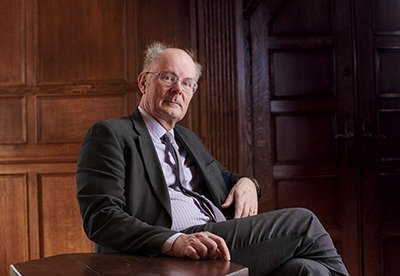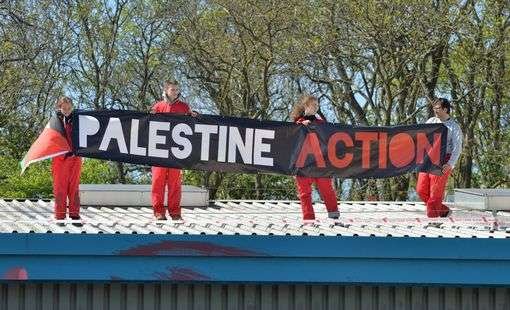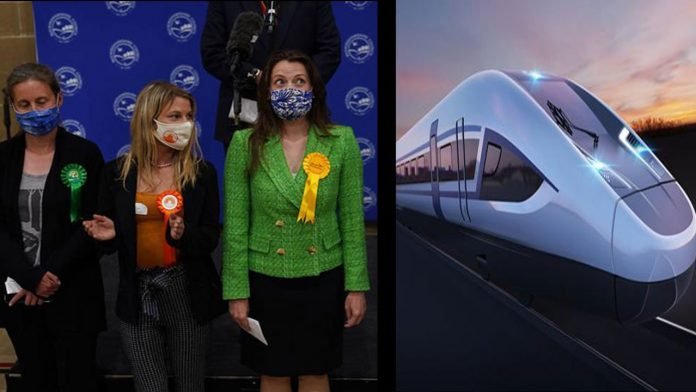The Conservatives have suffered a humiliating by-election defeat as the Liberal Democrats secured a historic win in Chesham and Amersham.
Sarah Green is the country’s newest MP after winning in what has been a Conservative stronghold since its creation in 1974.
The contest was triggered by the death of former Tory cabinet minister Dame Cheryl Gillan, who took the seat with a majority of 16,233 at the 2019 general election – some 55% of the vote.
The stunning result on Thursday night saw the Lib Dems’ Ms Green defeat Conservative candidate Peter Fleet by a majority of 8,028.
More embarrassingly for Sir Keir Starmer’s Labour, they polled the worst Labour by-election result since 1918 with only 622 votes, that’s not a misprint again Starmer’s Labour only received six hundred and twenty-two votes.
The Party will lose its deposit after failing to get more than five per cent of the vote in the Chesham and Amersham by-election.
Brexit still matters

The scale of the win was remarkable, suggesting something deeper and wider than an angry backlash against development may be going on.
Sarah Green secured a majority of 8,028 – overturning a comfortable Conservative majority of 16,000 in the seat which has been a Tory stronghold since its creation in 1974.
Polling guru Professor John Curtice pointed out that Chesham and Amersham is one of several Tory seats in the south where a majority voted to stay in the EU, with Brexit continuing to create a big cultural divide at each election.
He told BBC Radio 4’s Today programme that the Lib Dem victory was down to a “combination of the Remain inclination of the constituency and a number of local issues – HS2, planning”.
Prof Curtice added: “Labour voters, who of course the majority are Remain voters, were quite happy to switch to the Liberal Democrats.”
The elections expert also believes Boris Johnson could be losing ground among well-educated voters in the south – even as he wins over working-class Leave supporters in other parts of England.
No longer will the people give their vote unconditionally

There are lessons here on community, belonging, hearts minds and just that old fashioned ability to listen to local people and the willingness to represent their views over Party lines.
Even if this is a continued divide of Remain and Leave this by-election was more than certainty about local issues.
This by-election shows a positive trend for the people and the worst nightmare for most parliamentarians. A trend that suggests the tribal loyalties can no longer be depended upon and people will not give their vote unconditionally.
There are many factors that can swing a by-election more so than a general election. In a by-election, we are not voting in a national government so the most important thing is to understand the local issues, being local always helps.
Sarah Green runs her own business and lives in the constituency. She has previously stood twice for Parliament in Wales – in Ynys Mon (Anglesey) in 2005 and in Arfon, in Gwynedd, in 2010 failing to be elected both times.
On one of the main concerns is the HS2 project, has a candidate Sarah Green stated:
“For me, HS2 is a big no. If elected, I will be a thorn in the side of this government and HS2 contractors,” she said.
“There are genuine fears that tunnelling could damage the chalk streams, which provide drinking water to thousands of local people. I’m calling on these works to be halted, so that concerns about the water supply can be properly addressed.
“Sadly, during this Parliament MPs will not have a vote on HS2, however there will be a chance to reject the government’s new planning laws which would see more unwanted destruction to our countryside.
“Just like HS2, this Conservative government wants to allow developers to build over our greenbelt with local residents powerless to stop them.
“After the pain from HS2 works, the new planning laws would be a devastating blow to our area.”
Ironically what was not said was that the Lib Dems’ are in favour of HS2 and have no intentions of stopping the roll-out, however, because Sarah Green had enough personal conviction and connection people voted for her.
Sarah Green showed attachment to the area she understood both the issues and concerns of the local community. Her campaign immediately put me in mind of Lee Rowley the Tory MP for North-East Derbyshire and how he became the local boy made good even if he was a Tory.
Local issues matter, local people with attachments to local communities win elections.

In North-East Derbyshire Fracking was a major local issue within the community. Former Labour MP, Natascha Engel initially opposed fracking when Ineos announced plans to explore for shale gas in the village of Marsh Lane in her constituency in January 2017.
She later visiting shale gas sites in Pennsylvania and switched sides in the debate. Within months, she lost her seat in the general election to the Conservative, Lee Rowley, who opposed fracking in the constituency. It was the first time the area was held by the Conservatives since 1935.
I remember watching the speeches from anti-fracking campaigners and to my amazement, Lee Rowley was handed the microphone he began to passionately push the anti-fracking agenda, a major issue for the local community of Eckington. During the public speech, Rowley pointed down the road to a house saying: “That’s my aunt’s house! Rowley then pointed to a bus stop on the country lane saying that’s where I caught the bus to school every morning!
It was clear Rowley had won the crowd he had made himself a contender in this traditional Labour Heartlands seat. Notwithstanding the fact, the pro-fracking former Labour MP, Natascha Engel, ran such a lacklustre campaign and clearly had her eye on another job one that proved local gossip right. In explanation of her eventual defeat at the 2017 general election, Engel pointed to problems in Labour gaining votes in its post-industrial heartlands and the absence of a significant student vote in the constituency, comparing the situation with her native Canterbury, a seat which Labour had won for the first time at that election.
Engel published a letter in support of fracking (against the national Party policy) immediately after the close of nominations for the Labour candidacy. North East Derbyshire has a large anti-fracking movement due to proposed developments by the chemicals company Ineos, and Engel’s nomination had been signed by some anti-fracking activists.
Unfortunately by 2019 even though Labour had found a fantastic advocate for the working class in Chris Peace Rowley had gained enough traction and support to be returned for a second time.
Local issues matter
Local issues matter and if the MP does not understand the feelings of the communities they represent then it should not be a surprise if the next step in their carrier is calling at the local labour exchange.
Of course, the Tory candidate for Chesham and Amersham by-election Peter Fleet who is also a businessman who had also attempted a parachute job standing in the 1997 general election in Southampton didn’t quite get the memo on local issues and felt towing the party line on HS2 would stand him in good credit once elected, Fleet said he wanted to work to “protect the special character” of the area which includes “minimising disruption from HS2” not quite the support the local community were looking for. Fleet expressed his feelings stating:
“I live in the constituency so I have long been opposed to HS2, while not a single Lib Dem MP voted against it in Parliament,” he said.
“My focus is on continuing Dame Cheryl’s great work to minimise the disruption.
“I’m demanding green bridges for wildlife to cross the tracks, and a redesign of that awful vent shaft at Old Amersham.
There was obviously a big difference for the local community.
However there were other local issues and the LibDems’ get more credit for not only recognising them but for understanding public opinion and listening.
Issue involving planning and the carving up of greenfield land featured prominently in the minds of voters:
Housebuilding
Candy Piercy, who fronts the Liberal Democrats’ campaign headquarters in Amersham, summarised this rural zeitgeist: “The main issues that people are telling us about are… around development… it’s not just about HS2. What is getting people really riled up is developers being given free reign across Bucks to build houses… people don’t feel that they have a say about how their area is developed.”
“If it was affordable housing, we would welcome it, and Sarah [Green, the Liberal Democrat candidate] wants to see the kind of housing that young people can afford.” Central government’s proclivity towards building expensive “commuter” housing is symptomatic of the government’s long held, urban-centric tendencies, and it’s clear the rural electorate are becoming disillusioned.
Piercy’s affirmations about development accurately reflects the public sentiments that I witnessed: concerns around the government’s recent changes to the planning permission laws were common. One woman told me that new housing needed to be cheap and accessible; “we’re lucky here, [newbuild housing] should be for the people that can’t afford to live anywhere else.”
The government’s proposed planning reforms – which would see Whitehall earmark new areas of development on greenfield sites – sparked fears about excessive housebuilding in Chesham and Amersham’s countryside.
There are many lessons to be learnt here amongst them what constitutes as local issues.

It is a political truism in the UK that foreign policy issues don’t swing elections. Ordinary people, supposedly, are motivated by “bread and butter” issues around housing, schools, and law and order, and are unmotivated by events happening in far-off lands.
That common sense is being severely put to the test in the northern England constituency of Batley and Spen, where the question of Israel-Palestine looks set to be a primary factor as the Labour Party struggles to retain a seat it has held since 1997.
Batley, located in the Kirklees district of West Yorkshire, is a town like a number of others in the north of England.
The cotton mills that dot the edges of Batley, which were once the heart of commercial life here, are now either empty or occupied by small businesses. One of the biggest employers is still the Fox’s Biscuits factory, meaning manufacturing is still a significant employer.
The white working class leave supporters and the Muslim working class have both got a gripe with Labour will Batley be another opportunity to send Labour a message.
Palestine is local to many residents of Batley.

From the end of the 1950s, the need for cheap labour in the town’s textile industries drew in migrant labourers from Gujarat, Punjab, Pakistan and India. The South Asian population of Batley is now around 33% in Batley West and 54% in Batley East.
Israel’s bombardment of the Gaza Strip in May killed 248 Palestinians, including 66 children, while Palestinian rockets killed 13 in Israel, including two children. A further 29 Palestinians were killed by Israeli fire in the occupied West Bank and East Jerusalem during the same period.
While Starmer issued a number of condemnations of the violence and Israel’s actions in Jerusalem, many felt he equivocated too much between the two sides and was reluctant to involve the party in the issue, in contrast to his staunchly pro-Palestinian predecessor Jeremy Corbyn.
George Galloway is gaining traction with the Workers Party, he has brought up a number of issues, a vote for him is a vote to remove Starmer, a vote for Galloway is to understand local issues and for many that includes Palestine.
Support Independent Journalism Today
Our unwavering dedication is to provide you with unbiased news, diverse perspectives, and insightful opinions. We're on a mission to ensure that those in positions of power are held accountable for their actions, but we can't do it alone. Labour Heartlands is primarily funded by me, Paul Knaggs, and by the generous contributions of readers like you. Your donations keep us going and help us uphold the principles of independent journalism. Join us in our quest for truth, transparency, and accountability – donate today and be a part of our mission!
Like everyone else, we're facing challenges, and we need your help to stay online and continue providing crucial journalism. Every contribution, no matter how small, goes a long way in helping us thrive. By becoming one of our donors, you become a vital part of our mission to uncover the truth and uphold the values of democracy.
While we maintain our independence from political affiliations, we stand united against corruption, injustice, and the erosion of free speech, truth, and democracy. We believe in the power of accurate information in a democracy, and we consider facts non-negotiable.
Your support, no matter the amount, can make a significant impact. Together, we can make a difference and continue our journey toward a more informed and just society.
Thank you for supporting Labour Heartlands












